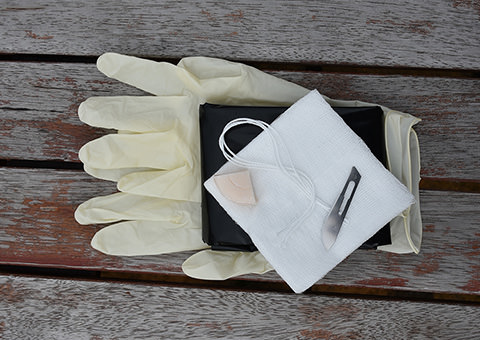
International
The articles below outline current International projects undertaken by The Rotary Club of Turramurra.
Enquiries about International Projects: Mark Hedges 0419 270547
Birthing Kit Assembly

Ophthalmic Project
Philippines/Griffith Ophthalmic Project
Philippines
- In 2016, Turramurra Rotarians agreed to support Professor Geoffrey Painter’s voluntary ophthalmic work in the Philippines.
- The team was led by Associate Professor Painter and Ms Kerrie Legge and was undertaken in Santiago, 350 km north of Manilla. About 5% of residents in this area are visually impaired, double the national average.
- By receiving a Rotary Foundation Global Grant, and partnering with the Rotary Club of Midtown Santiago and the Adventist Hospital Santiago, it was possible to acquire diagnostic equipment, train screeners and provide transport for the team. The project budget was AU$100,000.
- In 2019, 1,022 people received essential eye surgery.
- Covid caused the Philippines project to be placed on hold.
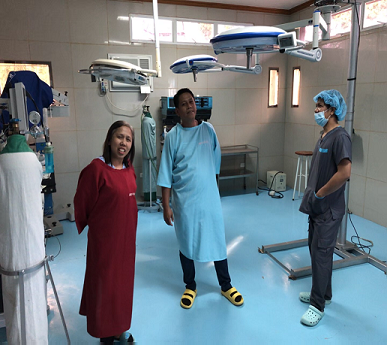
Griffith
- It was decided to investigate the possibility of running a similar project in NSW with an indigenous community.
- With the help of MP Alister Henskins, NSW Health and the Murrumbidgee Local Health District, the ophthalmic project was launched in the Griffith area in 2021 with the challenge to reduce the waiting times for the indigenous communities who were facing a two year wait for screening.
- Stakeholders in the project are the Griffith Aboriginal Medical Service (GAMS), the local Health District, local Rotary Clubs, Griffith Base Hospital, St Vincent’s Clinic and local councils.
- Training of screeners took place over one year at GAMS.

Achievements
- Twenty Cert 4 officers have been trained to screen for eye disease.
- A regular monthly service is provided by three practitioners.
- Patients do not have to travel to Wagga for treatment.
- Waiting list for public patients reduced from approximately 18 months to four weeks.
- The GAMS Clinic in Lake Cargelligo can now undertake eye checks.
- GAMS arranges transport for Aboriginal patients.
- Surgical facilities have been established at the St Vincent’s Eye Clinic.
- Ophthalmic surgery has been reintroduced into Griffith after a 17 year absence.
Future Goals
- Obtain a portable Retinal Camera - $15,000.
- Addition of an eye check to the health passport in 2024.
- Statewide eyesight screening for preschoolers.
Bangladeshi Food Bank
Dr Gulam Khandaker, a club member, is originally from Bangladesh. He worked with the club to set up projects in rural Bangladesh with a group of families that all have children with cerebral palsy. An infrastructure program providing ramps for wheelchair access ran for two years followed by a rehabilitation project for another two years.
The Bangladesh cerebral palsy register established that the children and their families live well below the poverty line. The fathers of those children work as daily wage earners - day labourers, rickshaw pullers, van drivers, weavers - or farmers. When the Covid pandemic hit, suddenly the fathers in this group had no work and families were in dire need of food. Due to the outbreak in Bangladesh, the country locked down with strict restrictions on non-essential movements. Without income sources, the families were struggling to provide meals for family members.
The charity, CSF Global, organised a Food Bank Program for these vulnerable people. Each food pack contained food for a family of five for two weeks at a cost of A$30.Members of the Turramurra Rotary Club donated $1500 raised from a "Cakeless Cake Stall", and donated a further $16,000 to the Food Bank.
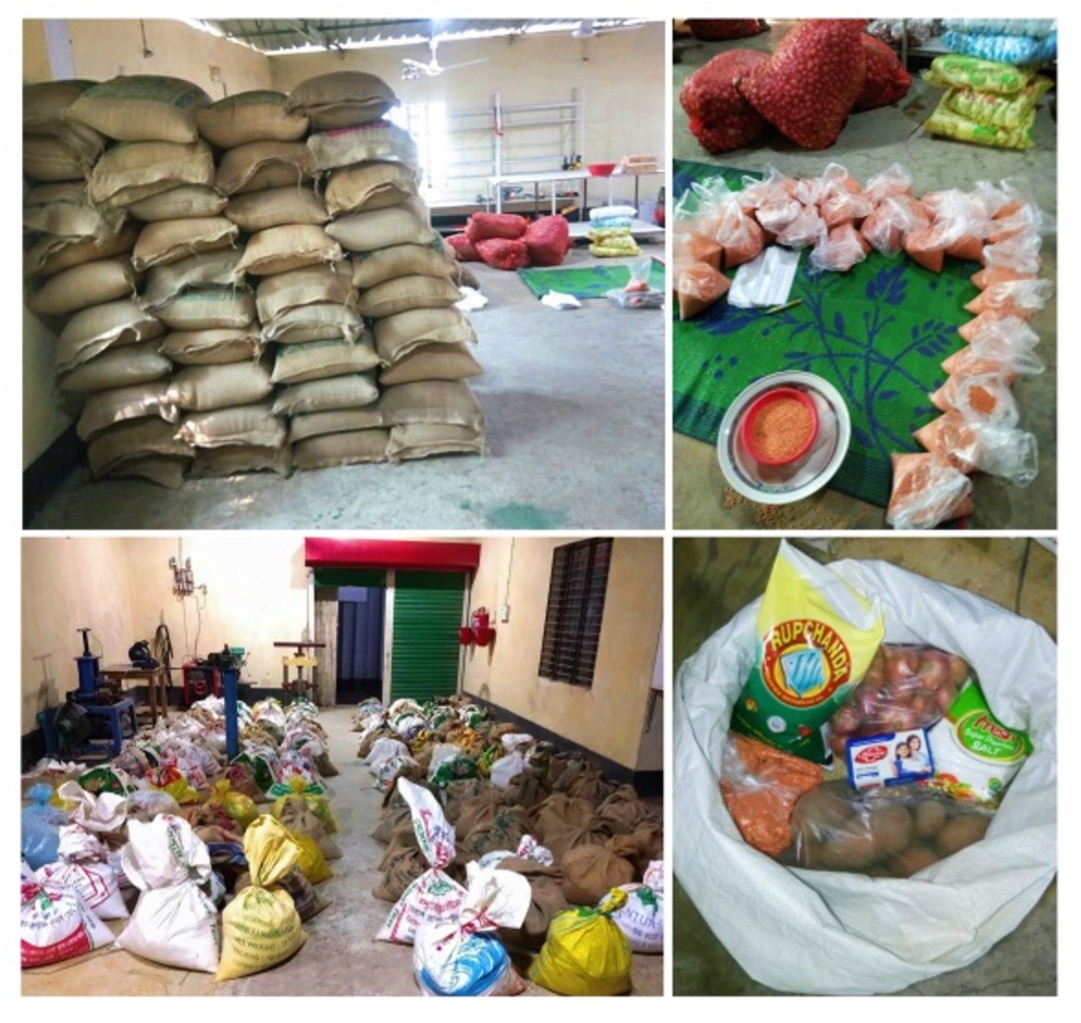
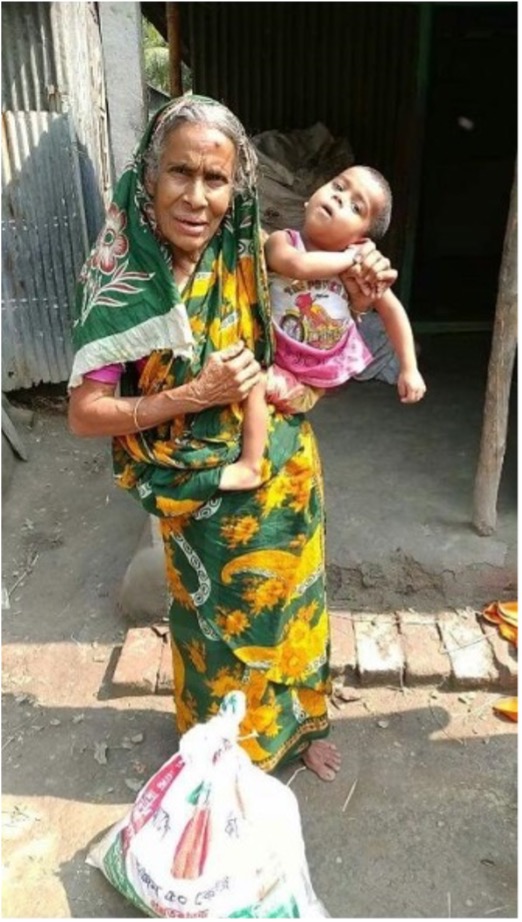
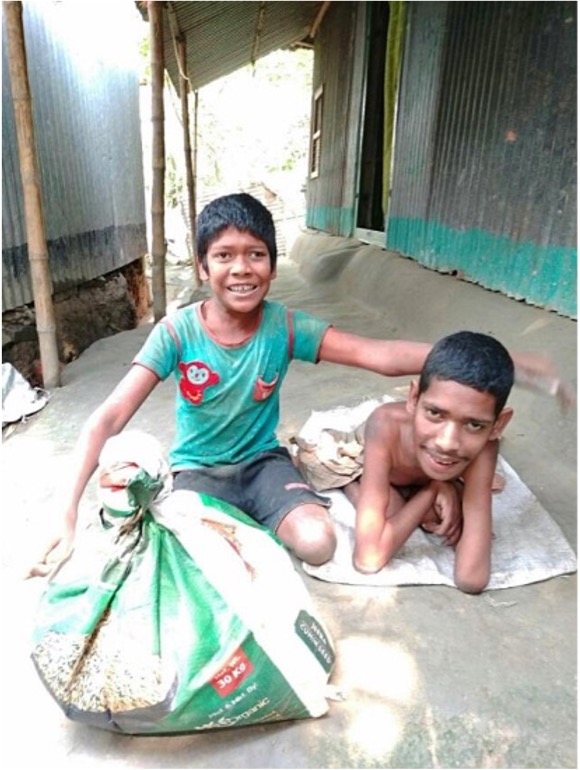
Manus Soap Project
The people of Manus Province in Papua New Guinea have a poor health service, minimal communication with the outside world and a low standard of living. The onset of the Covid-19 pandemic put them in an extremely vulnerable position.
Soap is an essential part of Covid safety precautions but soap is a luxury item for the Manus Province people. Turramurra Rotary Club honorary member, Lynne Shori, initiated a project, in conjunction with Wantaim PNG, to provide four tranches of soap, eight months supply, to every household. As culturally relevant messaging was severely lacking, flyers in local language were delivered across Manus Province with the support of government teams.
Turramurra Rotary provided $6,000 of club funds and achieved a matching District Grant of $6,000, and then the club also donated over $18,000 from club reserves. The project has led to recognition of Wantaim PNG by the World Health Organisation, who are now offering assistance to Wantaim PNG for further health projects in the Manus Province.

Polio Eradication

A Rotary program...
1985: 350,000 cases annually
2013: 406 cases, worldwide
2020: 2 cases, worldwide
At the time that Rotary formalised its eradication efforts by creating the PolioPlus program in 1985, polio was killing or paralysing more than 1,000 children per day.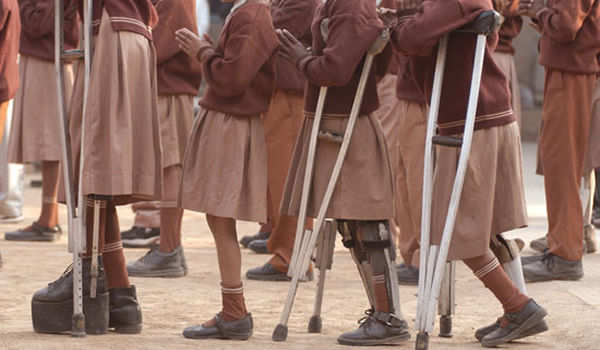 Since then, thanks to Rotary and our partners, the world has seen polio cases plummet. In the process, more than ten million children who would otherwise have been paralysed, and 250,000 children who would otherwise have died, have been spared these fates.
Since then, thanks to Rotary and our partners, the world has seen polio cases plummet. In the process, more than ten million children who would otherwise have been paralysed, and 250,000 children who would otherwise have died, have been spared these fates.
India — long considered a country where it would be simply impossible to eradicate the disease has not had a case since 13th January, 2011 and has been declared polio free.
After decades of hard work and tenacity, Rotary and our partners are on the brink of eradicating this shocking disease. However the job is not done yet, serious risks remain and a strong push needs to be maintained to root it out once and for all. It really is a window of opportunity of historic proportions.
The polio cases represented by that final fraction of a percent are by far the most difficult and expensive to prevent. Challenges include geographic isolation, worker fatigue, armed conflict, and cultural barriers.
That's why Rotarians continue to raise funds. To date, Rotary worldwide has contributed well over US$1.2 billion to the polio eradication effort.
Hamamas Meri = "Happy Woman" (Days for Girls)
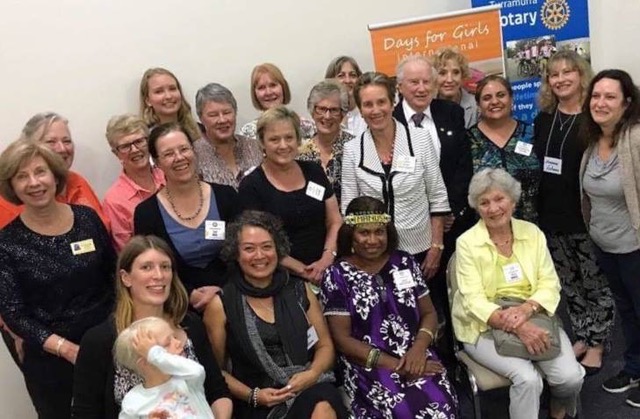
The aims of this project are:
- To ensure the women and girls of the Admiralty Island group, including Manus Island, don’t have to miss days of school or work every month.
-To provide pre-prepared, sustainable female health kits, prepared by the Turramurra Rotary team, for the local women to sew together and distribute to their local schools and villages. The sale of these kits locally gives the local women an ongoing source of funds and social standing in their communities for ongoing female health education.
The project pilot, sponsored by the Rotary Club of Turramurra and Wantaim PNG, started in June 2017. Initially, a team of Turramurra members, partners and friends prepared 300 kits, trained by a ‘Days for Girls’ Team Leader. The kits were then transported to PNG by the Australian Air Force.
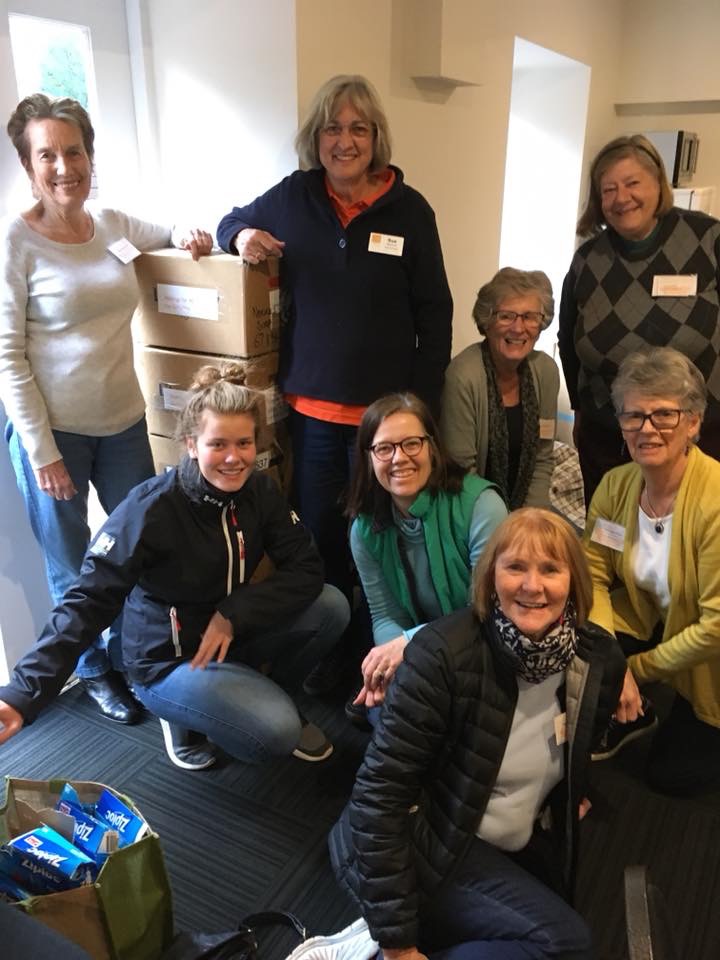
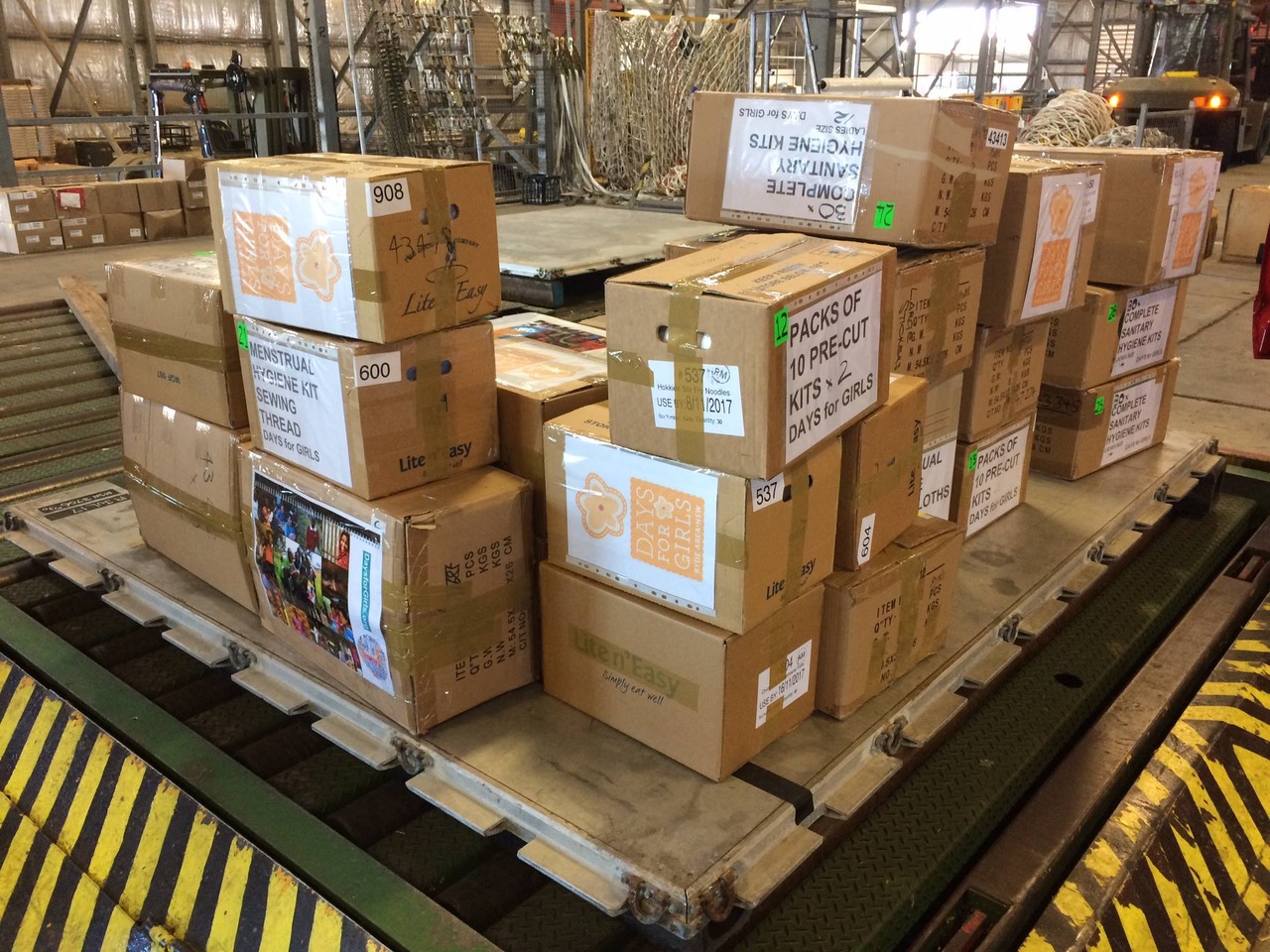
In October 2017, a small team of volunteers trained the local women of Manus in female health education and the sewing together of the kits for distribution to local girls and young women via local village networks.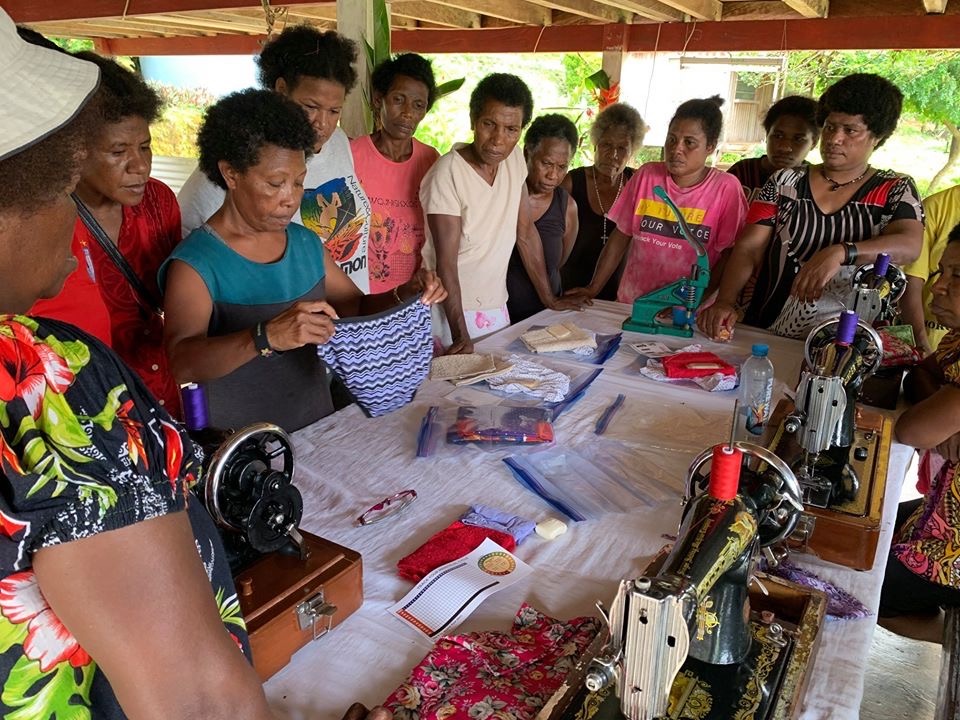
After the success of the pilot, monthly workshops, for cutting and sewing of fabric, have been regularly held in Turramurra. The team of volunteers maintains a supply of the pre-prepared kits to send up to the Manus Group for finishing and distributing.
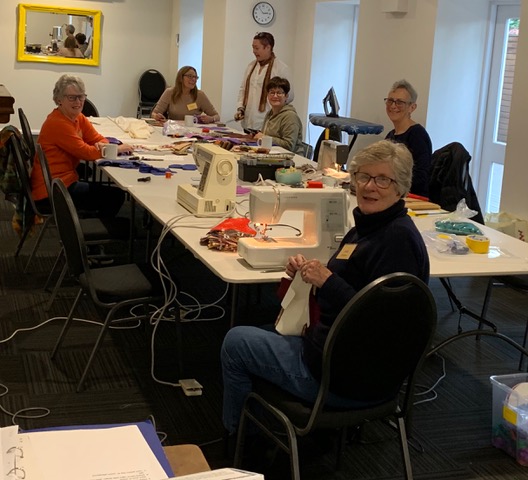
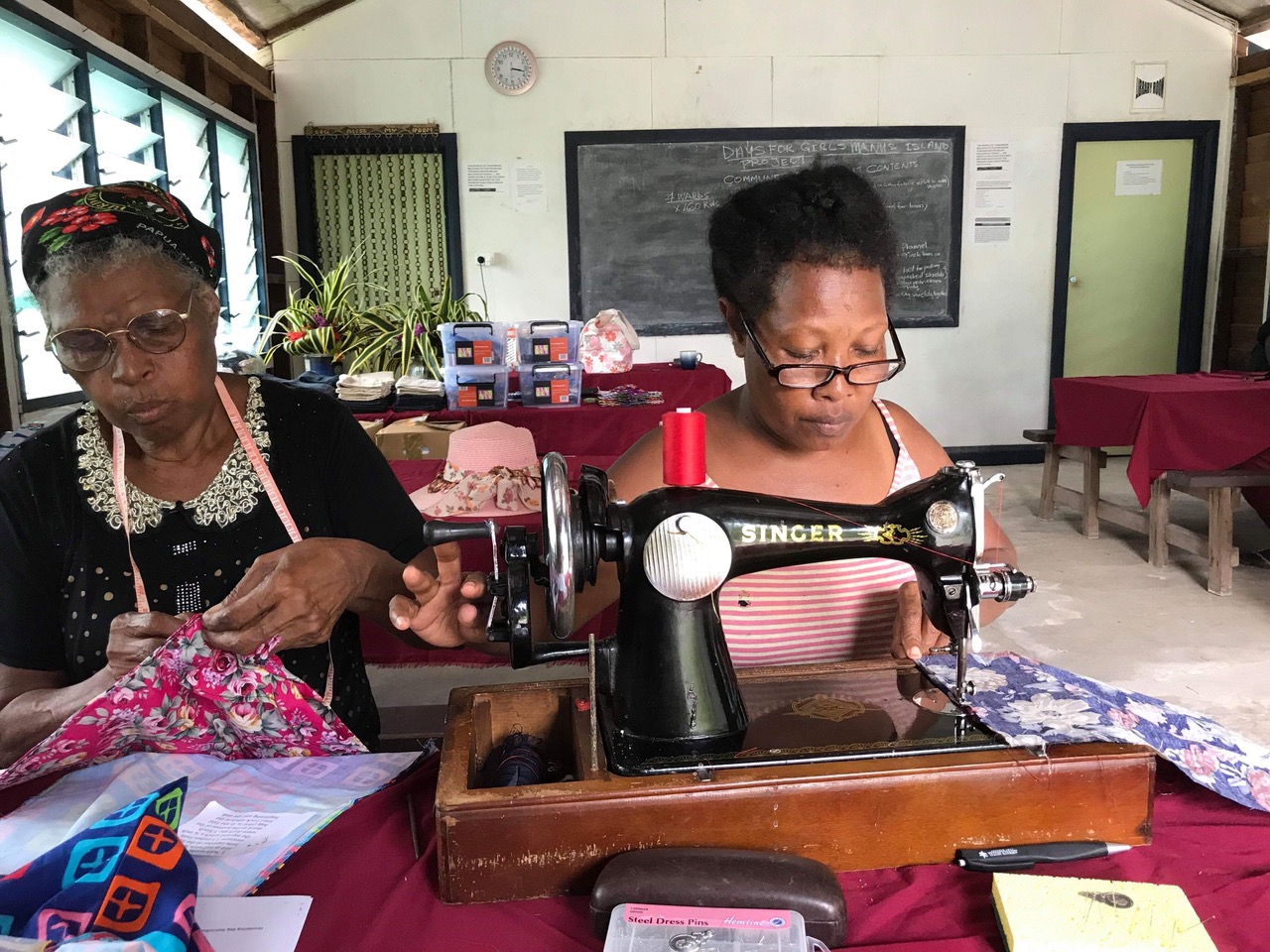
Funding has been sourced from Turramurra Rotary Club fundraisers and grants.
The bonus of this project is the opportunity for local volunteers to work together in a convivial group environment knowing they are making a difference to the health and lives of disadvantaged women and girls in Papua New Guinea - particularly in the Manus Island group.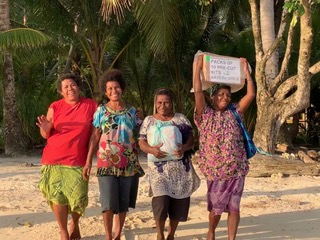
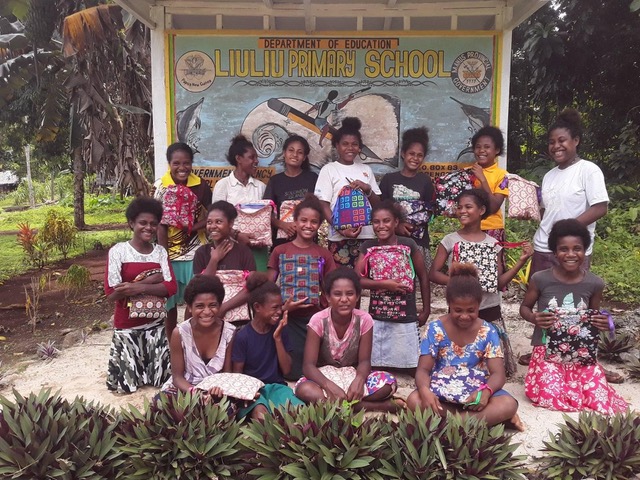 (Photo: Wantaim PNG)
(Photo: Wantaim PNG)
Turramurra's Hamamas Meri team celebrated on 20/5/2023 as a milestone was reached in the feminine health project. All our workshop materials were packed up and were collected by Wantaim PNG founder Lynne Shori.
The aim nearly 6 years ago was to assist the team in Manus to be able to drive the project themselves, up-skilling women in the Admiralty Islands. It was thrilling to hear that the team in Manus is now ready for the challenge. What a fantastic group of women (and men) and friends of Turramurra Rotary who have delivered a great range of skills and time to help this project get off the ground and progress. We now wish the women of Manus every success.
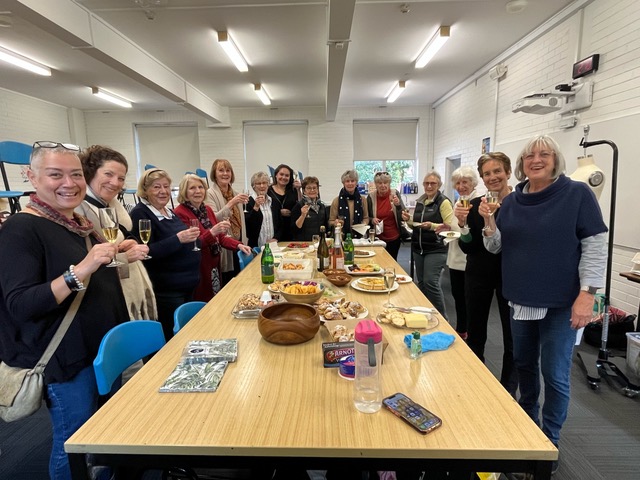
Celebrating the end of a successful international project.
Sincere thanks to: Turramurra Rotary Club; Manly Rotary Club; Wantaim PNG; Hamamas Meri Team; Days for Girls; Pymble Ladies College (for providing a local workshop venue); Australian Government (DFAT grant); Steamships Trading Company (grant)
Contact: Pam Pritchard,, Mobile phone: 0411 335 299 email:This email address is being protected from spambots. You need JavaScript enabled to view it.
Bo Childrens Hospital, Sierra Leone
Sierra Leone in West Africa, has suffered many years of civil war and political instability leaving this small but densely populated country in a destitute state with frightening child mortality and virtually no health care in rural areas.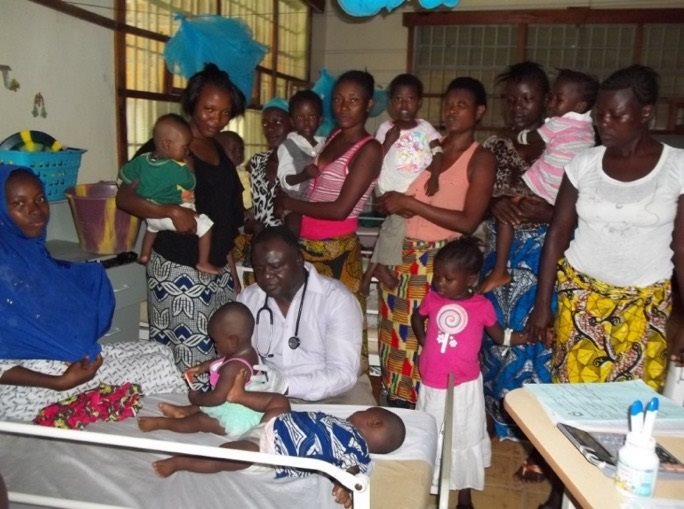 One in six infants die at birth and 282 children per thousand die under five years of age. Life expectancy is 34 years and one in six women die in childbirth. The main killers are Malaria, Diarrhoeal diseases, Respiratory disease, and Malnutrition.
One in six infants die at birth and 282 children per thousand die under five years of age. Life expectancy is 34 years and one in six women die in childbirth. The main killers are Malaria, Diarrhoeal diseases, Respiratory disease, and Malnutrition.
Recently a stable government has implemented a highly successful peace keeping and disarmament program, rebuilding the economy and has had 90% of its foreign debt forgiven by the IMF and World Bank.
Dr Nuli Lemoh, born in Bo and a member of the Rotary Club of Turramurra and respected Sydney paediatrician, has carried a life-long dream to build a Children's Hospital in Bo, the largest rural city in his poverty stricken and war-torn homeland. The only children's hospital in Sierra Leone was in Freetown, four hours drive away.The city of Bo is vibrant and looking to clubs like ours to help build the basic infrastructure required to improve life expectancy.
The vision for the Bo Children's Hospital project is: To treat, teach, train, to improve child survival and health.
The Turramurra Rotary Club raised initial funding for the project, working with the Rotary Club of Bo with strong support from local and overseas Rotary Clubs, Rotary International and International House at Sydney University.
The Hospital project commenced in 2008, was completed in stages by 2011:purchase of 3 acres of land, construction of 21 bed hospital,to be increased to 60 beds, diagnostic facilities and short term treatment, operating theatre, health education, training and research unit. Its success is demonstrated by comparing the death rate of the 18,000 treated there of 5 in 1,000, to the death rate across the country of 165 in 1,000.
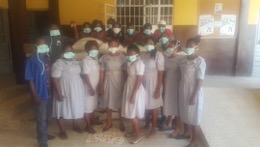
Turramurra Rotary continues to support the hospital with ongoing funding.
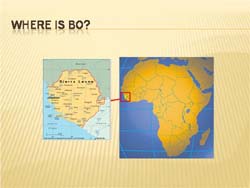
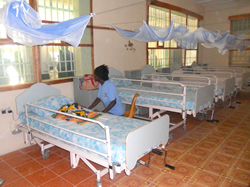
Attention is now turning to running the hospital: staff, furnishings, office equipment, medical equipment and medicines. Importantly, focus is also on health education and establishing a research unit aimed at educating children and parents on nutrition and prevention of disease. When Covid-19 hit, the Sierra Leone government temporarily took over the hospital for victims of the pandemic. The staff were desperately short of Personal Protective Equipment (PPE) so Turramurra Rotary Club donated $16,000 to provide for their safety. Fortunately the desperate need has passed and the hospital is operating again as a very successful Children's Hospital.
![]() Copyright © 2024 Rotary Club of Turramurra Inc. Design by HelpfulWeb Design
Copyright © 2024 Rotary Club of Turramurra Inc. Design by HelpfulWeb Design